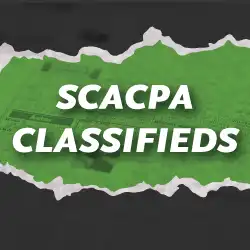Author: J William Strickland, CPA, MBA, JD
This article originally appeared in the Fall 2024 issue of the South Carolina CPA Report
On Thursday, September 19, the Columbia Internal Revenue Service office hosted a South Carolina Practitioner Liaison Meeting attended by a dozen or so CPAs from around the state. Evette Davis, the Senior Stakeholder Liaison, moderated the meeting. There were presentations by:
- Jacob Thiessen, Senior Advisor – Policy Division, on Beneficial Ownership Information (BOI)
- Johnnie Goodlet, Supervisory Revenue Officer, on collections
- Adam Wooten, Supervisory Revenue Officer, on examinations
- Cory English and Mack Yates, Special Agents, on TIGTA (Treasury Inspector General for Tax Administration)
Mr. Thiessen gave an overview of the Corporate Transparency Act (CTA) and referred to the FinCEN website for the small entity compliance guide. He commented on CPA liability with respect to preparing BOI reports, stating that there is no inherent liability for CPAs under the CTA unless they willfully report false information. He said that filing a BOI report would not, of itself, constitute the unauthorized practice of law; however, determining the identity of persons who meet the ownership or control thresholds could entail activities that might be considered the practice of law.
Mr. Goodlet discussed how collection agents work from home unless an appointment is scheduled to be held in an IRS office and that their typical caseload is about seven active cases, although their case log may be as many as 70 cases. He stated that since July of 2023, collection agents no longer make unannounced visits and provided detailed procedures the agents must follow in their collection process. He referred to Publications 1 (Your Rights as a Taxpayer), 594 (The IRS Collection Process), and 3151-A (The ABCs of Federal Tax Deposits) as useful guides once a case has been turned over to collections. He distinguished the Notice of Tax Lien from a levy. He also provided a few helpful tidbits by pointing out that once a Power of Attorney (Form 2848) has been filed, all contact will go through the taxpayer’s representative, which will be helpful to us as CPAs handling cases on our clients’ behalf. Secondly, you can conveniently use the Document Upload Tool when the taxpayer’s notice so indicates in the upper right corner of the notice. Finally, email with the IRS is not secure, so obtaining a Tax Pro Account and using that resource on the IRS website is more secure.
Mr. Wooten discussed the different types of examinations, i.e., correspondence, office, and field. He gave an overview of the audit process. He also said that the hiring of additional agents would create more fieldwork for the IRS, ideally for high-wealth taxpayers, with emphasis on pass-through entities, i.e., partnerships, S-Corporations, and trusts. He drew attention to Internal Revenue Code Section 6235, Period of limitations on making adjustments. He also commended the document upload tool (DUT) whenever it is possible to use it.
Mr. English discussed criminal and civil investigations and provided case examples from his experience. He emphasized the work that TIGTA does investigating stolen U.S. Treasury checks and providing independent oversight of the IRS. He cited fraudulent activity with Economic Impact Disaster Loans, the Paycheck Protection Program, the Employee Retention Credit (ERC), and fabricated entities. He warned against IRS impersonation schemes and recommended using the check integrity program and the TIGTA hotline (800-366-4484). He talked about protecting IRS agents and their families, about tax professionals facilitating fraud, and about cooperation between TIGTA and tax professionals to bring criminals to justice.
Ms. Davis closed the session by noting that the IRS caseload is now “caught up,” meaning that the cases have all been assigned, but there are delays as new hires are trained and brought up to speed. She added that the IRS is strongly considering making the 1099-K threshold $5,000 going forward in 2025, rather than the $600 for which it is currently scheduled. Finally, she gave no timeline for resolving and processing Employee Retention Credit claims.



